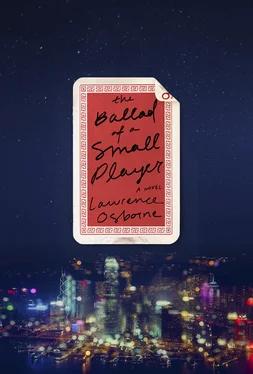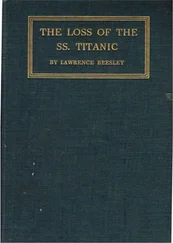But then she talked at greater length. Her father had been a welder working on hotel projects of Chengdu, and he was never home. He had found a better life. Her mother worked in the fields.
She was the only child. She had gone to school in the village, bright, industrious, and seemingly little connected to her cold, fractious parents. It was rumored in the village that the father had run off to the big city with a waitress from a tourist hotel in Litang, and it was probably true. Her mother, half-abandoned, labored on grimly without mentioning it to her daughter. In the winters he would sometimes come back and make his awful “Zhang wine” in huge glass vats. He fermented them all winter with medicinal herbs and then drank himself into oblivion. He spoke to Dao-Ming in Mandarin, and to his wife in Zhang. He had picked up some airs in the big city.
The winters in those high lands were unimaginable. Before they were snowed in and the road between Daocheng and Litang was closed, her mother took her on their motorbike into the hills where Zhang farmers in their tall Stetson hats and pointed boots sold medicinal roots to passing cars. In the autumn and the early spring they rode into Litang and spun the gold-plated prayer wheels in the temple and bought gas canisters for the house. They went to another temple outside Daocheng, that bitter and wind-blasted town, a place of white stupas along the banks of a rippling, stone-filled river, where the grassland was flat and white with ice. The mountains there were strewn with lines of prayer flags that ran from the summits into the ravines below and made them look like immense cakes. They could walk from village to village, her mother flipping her little prayer wheel in one hand and summoning Buddha to mind with recitations.
It was a holy land. In spring they would see picnic parties of monks in brilliant boat-shaped gold hats sitting in the new grass with yak herds dotting the dark green slopes. The tents of the Zhang nomads with walls around them. In the villages at the bottom of the gorges the houses were whitewashed. Their flat roofs were piled with drying straw and the windows and lintels painted with the violent colors of the Tibetan afterlife. The swollen rivers churned through them like floodwaters; in the awakening rose gardens the old women stood in their straw hats like ghosts, but their eyes were alive.
But before spring came around they were trapped in the valley. They were enclosed alongside the monastery in their gaunt, dark-brown fortress houses, around which the shallow rivers ran. The monastery’s wooden gates and loggias were painted with gods and demons. In the woods below it lay the adobe huts of the monks. Dao-Ming went into the temple every day with a renminbi note, climbed the ladder to the first floor, and walked on the balcony that curled around the shrine. With the truck drivers and the traveling mechanics, she dropped her note onto the floor below and wished for her father to come back from the city and stay. He never did. The yak butter candles glittering in the dark never answered her prayer. She began to understand why he had left.
When her mother took her to the temple outside Daocheng, she told her that the dead were not really dead, they were merely being reborn, but sometimes being reborn was worse than suffering extinction.
“If you disappeared, you wouldn’t suffer. Being reborn forever — no wonder the Communists told us it was an evil religion.”
“It isn’t evil,” Dao-Ming said. “It’s just true. Whatever is the truth is bound to be horrifying.”
She prayed herself, and worked the fields when she was thirteen; she was never sick and the snow never affected her. No one knew what was going to become of her. She was too refined and aloof for the local boys. She was never going to be a truck driver’s wife, or a farmer. She was never going to stay in the beautiful valleys of Kham. “I’m a hardheaded peasant,” she said, “but not hardheaded enough, or too much so. Or maybe I’m not as much of a true peasant as I think I am. I admire them, though. To me, the word is a compliment. I wish I were more like my mother. Enduring.”
She turned onto her back and the smoke shot up from her mouth. There was a steeliness in the way she remembered her own life. She put down the pipe.
“They thought I was haughty and would come to nothing. Well, I did come to nothing. But not in the way they predicted. I could have studied — but I was impatient. I didn’t want to be just another pharmacist in some run-down industrial town. I wanted some good luck. I wanted — as we say — the open sky. I can’t say whether I found it or not. I found you.”
She smiled.
“Shall we have some oolong?”
It was nearly dawn, and through the blinds the restless blue of the sea was beginning to materialize. The floating houses bobbing. She filled the kettle and broke more tea into the pot. I put my arm around her middle, drawing her a little toward me, not knowing if I should. Somehow we never made the tea. Instead, we slept again. I felt the space between her sharp shoulder blades, the knobs of the spine. There was a curious swelling along her neck and when I touched it she reached up for a moment and brushed my hand aside.
For several nights we walked down to the restaurants in Yung Shue Wan, and while we looked up at the three giant chimneys of the Lamma power station she fed me fine long bamboo clams and slipper lobsters colored the pale pink and green of shells served on their backs under garlic crusts. We went to the Seaview and picked out leopard coral groupers from the outdoor tanks or dull red star groupers or green wrasse, and had spicy sea snails with rice wine and geoduck clams and king prawns. She ordered me fried tofu, the famous Lamma tofu of Grandma Tsiong. She skewered whatever we were eating on a metal fork, lifted it over a raised hand, and pushed the flesh onto my tongue; we ate our selections with spring onions tossed in oil, and kale, with crunchy green beans and perfect rice. “There’s a road that runs alongside the power station,” she would say, looking toward the chimneys on the far side of the bay, “called Precipitator Road, and there’s a Stacker Road, too, and an Administration Road. So poetic. Our island is a floating power station.”
The elderly proprietors greeted her with a certain coolness, though it might equally have been some style of formality with which I was not familiar. It might have been because she was overdressed, or wore too much jewelry, but I sensed that it was not that. Nor was it because of her profession. It was something else. It was a coolness in her, too, a coolness that subtly repelled them and made them keep their distance, resentful and alert to the possibility of her displeasure. I sensed them criticizing us behind our backs. But they never said anything to our faces. I understood them. I, too, could not get to the back of her; her door would not open even a few inches. But still, one has to live.
When the first hot mornings came and the rain cleared we got up early without a word and drank oolong tea on the terrace above the rippling bamboo and banana fronds. The cicadas coming to life, roused by instinct and dryness. The blade of the distant wind turbine rising and falling clockwise, and the sound of carpets being beaten in the houses on the hill of Ko Long. We walked up to the top, where the paths turned in different directions. From there Ko Long could have been Italy, a backwater of Ischia, but silent and neat and intensely private. The path running along the crest, and then into jungles.
She held my hand, steadying my still-weak system, and we descended a steep incline toward a wooded beach, where the shops were closed and from where the power station could be seen, its pale brown chimneys massive and scornful and righteous. From here the path, neatly municipal, rose steeply around the bulk of stony mountains, a place of low scrub and tawny rocks hanging above a tropical sea. Pavilions on the lookout points, shaded and filled with elderly hikers.
Читать дальше












